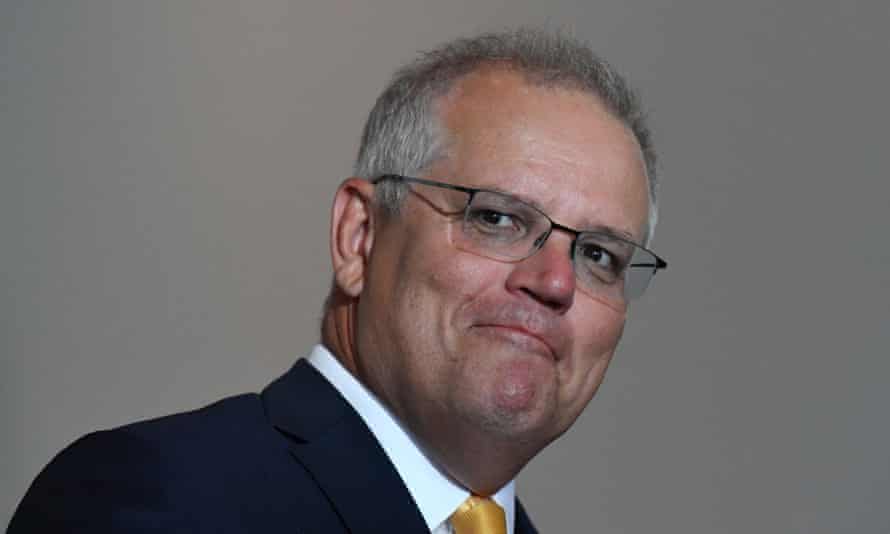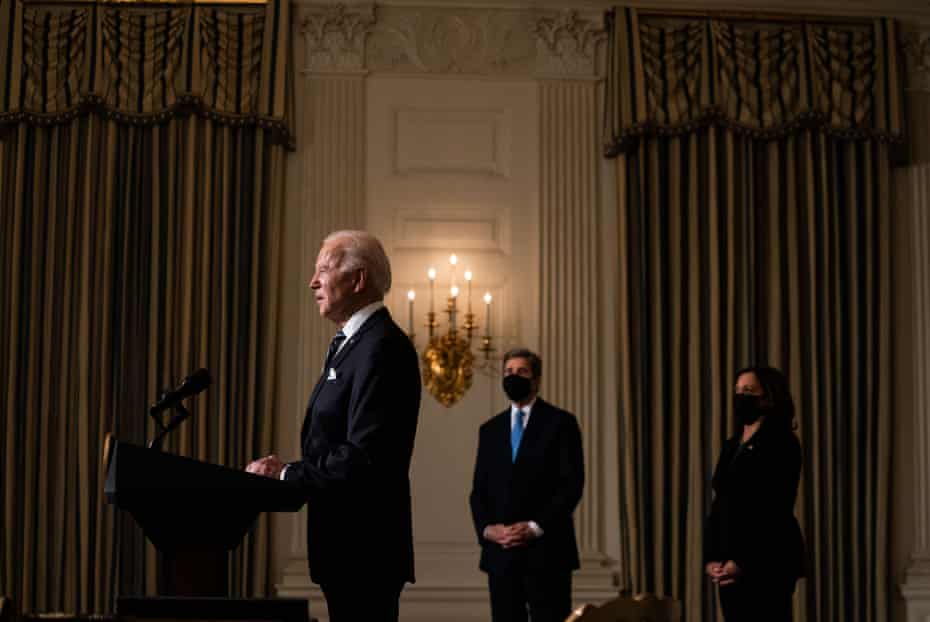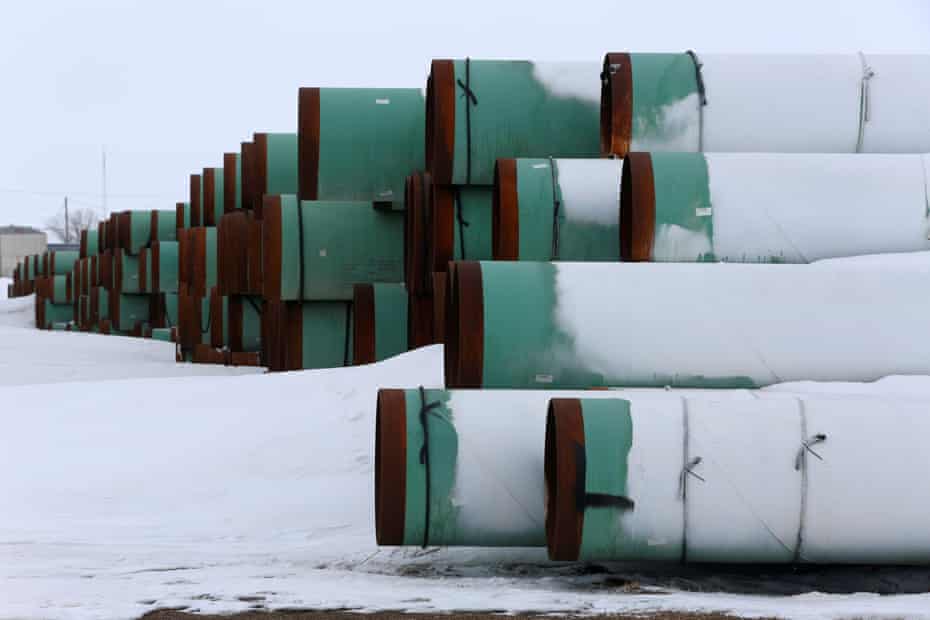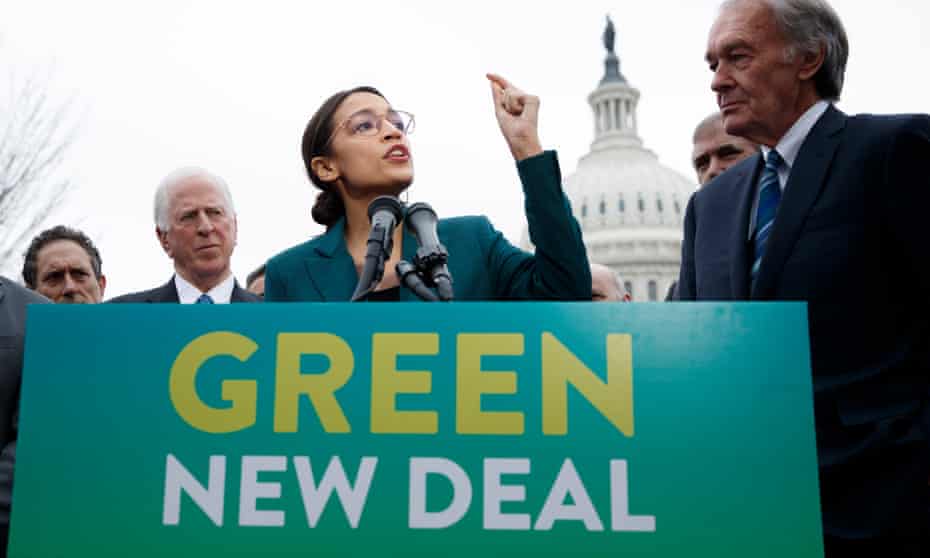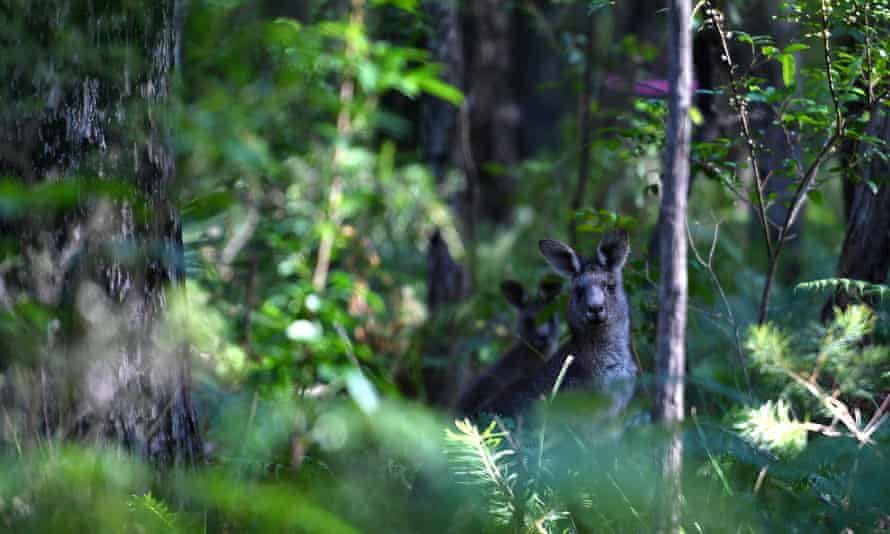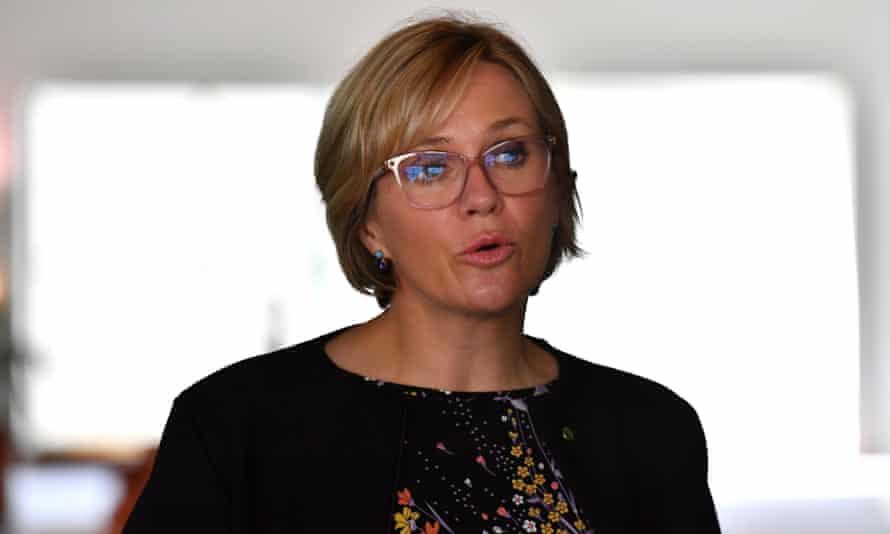Geraldine Doogue: Hello there, I'm Geraldine Doogue
and I'm delighted to introduce this year's Boyer lectures. This ABC
flagship series of talks began in 1959, and each year a prominent
Australian is invited to share their views on the challenges and the
opportunities that lie ahead of us.
This year's Boyer lecturer is
the leading Australian businessman Dr Andrew Forrest AO. Dr Forrest is
the founder and chairman of Fortescue Metals Group. He is also a leading
philanthropist, having co-founded the Minderoo Foundation with his wife
Nicola in 2001. Dr Forrest will make the case for business to
collaborate with philanthropy to drive positive change and to solve some
of the world's most intractable problems, that scale will matter, he
suggests, in some of these very big long-term challenges. Here now is Dr
Andrew Forrest with the first of his Boyer lectures: Confessions of a
Carbon Emitter.
Andrew Forrest: The Boyer
lectures are traditionally lectures; a speaker lecturing Australia about
what it should do. I've chosen a different path. This lecture is about
what I'm doing to fight climate change, under the premise that actions
speak louder than words.
But first, I have a confession to make.
The iron ore company I founded 18 years ago, Fortescue, generates just
over two million tonnes of greenhouse gas every year. Two million
tonnes. That's more than the entire emissions of Bhutan and its 800,000
inhabitants. It's a huge number, yet it's also just 0.004% of the
greenhouse gas that enter the atmosphere every year, of around 51
billion tonnes.
The answer isn't to stop mining iron ore, which is
critical to the production of steel, to humanity. The answer is green
zero-emissions energy and steel. Every day that the sun shines, the wind
blows, rivers flow and Earth's core radiate heat, we waste green energy
in proportions that dwarf the energy produced by the entire global oil
and gas sector. If these renewable energy resources were a power
station, the plant would be millions of gigawatts in size. To put that
into perspective, Australia produces all of its electricity from just 70
gigawatts of power. There's enough pollution-free renewable energy out
there to last the entire Anthropocene.
The Anthropocene is the age
of mankind. Just as the Mesozoic was the age of dinosaurs, humans now
have their very own geological period, except the markers of our era
won't be Tyrannosaurus rex teeth or asteroid craters, they'll be giant
landfills of single-swig, plastic water bottles, which effectively
become fossils the moment they're made. We have no idea how long the
Anthropocene will last. But if we don't stop warming our planet, it
could be geological history's shortest era.
The solution lies in
hydrogen. The greatest natural resource Australia has isn't iron ore, it
isn't gold, it isn't gas, it's certainly not oil or coal, it is
hydrogen. Hydrogen is by far the most common element of the universe. We
aren't going to run out of it anytime soon. It makes up 75% of the mass
of the universe. Down here on Earth, hydrogen is just as abundant. To
make it, all you need to do is run electricity through water. The result
is green hydrogen, the cleanest source of energy in the world, and one
that could replace up to 75% of our emissions, if we had the technology
and the scale.
But right now, what do we do with hydrogen? Well,
we treat it as just an ingredient in various industrial processes, not
as an energy source. And we make it from burning fossil fuels, quaintly
calling it grey hydrogen to hide the fact it's a pollutant.
Green
hydrogen—the good stuff—is virtually ignored by the economic world.
We're missing a colossal opportunity. The green hydrogen market could
create revenues of US$12 trillion by 2050, way more than any industry
that exists today. Even Australia's enormous iron ore sector, which has
an export revenue of more than $150 billion, is barely one-100th of
this.
And Australia, with characteristic luck, is sitting on
everything it needs to be the world leader, but only if it capitalises
on its advantage immediately. Why? Because the journey to replace fossil
fuels with green energy, which has been moving at glacial speed, has
suddenly slipped into high gear. The energy markets have finally started
to move, quickly and violently. In the past six months, every major
government in the world has wrenched economic levers to force the
transition away from polluting fuels. Japan, South Korea and China each
have plans to have between 800,000 and 6 million hydrogen fuel cell
vehicles each on the road in the next decade or so.
Even Boris
Johnson, who once said that wind power 'wouldn't pull the skin off a
rice pudding,' has invested £12 billion green industrial revolution. And
I think most importantly, he has banned the sale of all fossil fuel
engines by 2030. In climate change terms, this is bigger than Ben Hur.
Australia
has declined to commit to a zero-emissions target, but even we are
investing AU$300 million in hydrogen technology. Europe though has
allocated €1 trillion—that's €1,000 billion—to reaching zero emissions
by 2050. And the United States has pledged US$2 trillion US dollars. In
almost every major business in the world has committed to net zero
emissions by 2050, including Australian companies, marching ahead of
government.
These are laudable and genuine ambitions. But if we
wait until 2050 to act, our planet will be toast. We're already way
behind schedule. The science says that to keep things halfway normal is
to limit global temperature rise to 1.5 degrees Celsius. The science
also says that to do this, we need to make major emission cuts every
year between now and 2030.
Right now we're heading for a 3 degree
Celsius increase in temperature, at least. That's how science works. You
can predict it. Bushfires will rage out of control, we've seen that.
Tourists will no longer have a Great Barrier Reef to visit. Our cattle
and our crops will struggle with incessant drought. There is only one
solution, and it will require businesses to work closely with
governments.
Green energies need to be available at an industrial,
global scale, and at a price that competes with fossil fuels. When
fossil fuel energy becomes more expensive than renewable energy, that's
when we will reach the tipping point, that's when the world will begin
the journey in earnest to become zero carbon, not because it's the right
thing to do but because it makes business sense. And the shift will be
lightning fast. Forget 2050; zero emissions will begin to happen
overnight. That's how capitalism works. You can predict that too.
One
of my favourite songs is Tom Petty's 'Runnin' Down a Dream'. In the
song he's chasing a dream that won't happen unless he pursues it,
wherever it leads. It's a song that makes you feel like anything is
possible. We played it every time our plane took off on our recent
five-month journey around the world to find the best places on Earth for
renewable energy, and a way to really change the world's source of
energy. The song is now tradition, part of the folklore of that trip.
While
net profit after tax continues to elude Tesla, it has a market value of
over US$800 billion. Its major climate innovation is a battery that
runs on whatever fuel is in the national grid, instead of a fuel tank.
I
think the real climate change challenger could well be Fortescue. We
have a market capitalisation of less than US$60 billion, but we made a
net profit, after tax, of US$941 million in December alone. Based on
this position of strength, the Fortescue board and management recently
took one of their most important strategic decisions in our history. We
decided to become one of the world's biggest renewable energy production
businesses to catalyse a global solution to climate change by rapidly
increasing the supply of green energy. It's a plan we have been working
on for two years and been thinking about for ten.
In August 2020,
myself and a team of 50, in the midst of a global pandemic, left behind
the relative safety of Western Australia to visit almost 50 countries.
From the Democratic Republic of the Congo, to -30 degrees Celsius
Tajikistan, it wasn't a glamour trip.
Timing was everything. The
world was in lockdown. Economies and oil markets were collapsing. The
diaries of political leaders were eerily empty, and foreigners were a
rarity. Those five months were some of the most surreal of my life.
And
when I caught Covid, and spent three days on oxygen in Switzerland, you
could be forgiven for fearing the worst. Being medevaced between
countries was no fun. Looking out of the isolation chamber, a tightly
sealed plastic capsule, just made me wonder why I had ever left home.
But
private discussions I've had with sovereign leaders, businesspeople,
politicians, financiers and technology developers made me see their
genuine thirst for our green energy. It made me suddenly, and no longer
just hesitantly, optimistic. I felt a change in the global mood, a shift
in belief, that the impossible could be possible.
American and
Asian captains of industry met us with a tirade of enthusiasm for
hydrogen, as did Europe, particularly Angela Merkel's office. In Bhutan,
the Prime Minister opened the border for the first time in months, just
to allow my team to enter, even though any staff who met us had to then
quarantine for three weeks. If you've done quarantine, you'll know what
a sacrifice that is.
In Afghanistan, the Vice President displayed
huge conviction that his country could play a major role in the world's
green energy future. On the same day that he survived a bomb and a
seven-minute gun battle in which ten people died, and with bandages on
his hands and burns to his face, he negotiated the final clauses of our
sovereign investment agreement, just so the President, one of the most
selfless leaders I have ever met, could sign the agreement before we
flew out.
On our way back to Australia, we took an unusual flight
path out of Central Asia; from Kyrgyzstan to Seoul, South Korea. If we
hadn't done this, we wouldn't have seen that thousands of wind turbines
and the foundations for what looked like tens of thousands more on the
Mongolian-Chinese border. This is a massive move into green energy, and
China is making it without fanfare.
In short, my time on the road
made me realise that our ambitions, while risky, are far from radical.
Harbouring a global ambition to produce green hydrogen and its liquid
form, ammonia, on a scale to begin to match the oil and gas industry
might leave me a little lonely in Australia, but step outside into the
big wide world and many other leaders are thinking the same way.
The
question isn't whether or not green hydrogen will become the next
global energy form, it's who will be the first to mass-produce it. Which
company could be so strong that it could allocate sufficient risk to
truly test green hydrogen at global industrial scale? In August 2020,
the board and I decided Fortescue would be that first mover. Our first
steps have locked in exclusive access to almost 300 gigawatts of hydro
and geothermal power. That's more than four times what Australia
consumes.
We targeted hydro-power electricity, generated from the
flow of rivers, and geothermal, which taps into heat from the Earth's
core, because, unlike solar or wind, these renewables work around the
clock. But we are scaling up wind and solar acquisitions too, exploring
over 500 gigawatts of energy assets and potentially thousands more
gigawatts will follow.
We aim to produce or help produce more than
1,000 gigawatts of zero-emissions energy to create so much momentum and
value that consuming energy from a polluting source, even if you are a
Tesla car battery, doesn't only become commercial nonsense but also a
conscience non-sense.
It sounds daunting, and there will certainly
be plenty of naysayers. But as someone who's made a career out of doing
what other people said was impossible, this doesn't feel any different.
You need a thick hide to withstand criticism, and, apparently, I have
that. A former colleague once said you could shoot me in the tail and I
wouldn't feel it. To which I'd answer: it runs in the family.
John
Forrest, my great-great-uncle, was born to indentured Scottish migrants
who arrived in Perth in 1842. John became WA's first qualified
surveyor, and pulled off a series of highly calculated death-defying
expeditions, including the first transect through Australia's centre
which joined our east and west coasts as one country, an eight-month,
2,000-kilometre journey, largely on foot. John received a knighthood
from Queen Victoria, and went on to become WA's first premier and a
Founding Father of Australia's Federation.
But for me, one of
John's greatest achievements is the risk he took in building the vital
water pipeline from Perth out to the Goldfields around Kalgoorlie.
Masterminded by the engineer CY O'Connor, he dug a 30-metre dam out of
the bedrock at Mundaring Weir near Perth, and, pumping the water 560 km
inland, they trialled on the spot new technologies for the first time.
They had to pump it up a gradient of almost 400 metres, acquiring eight
relay stations along the way. Each of the 60,000 sections of pipe they
laid, often by hand, weighed a tonne. The logistics were formidable and
still would be today.
Forrest faced huge criticism over this
project and was told to stop wasting public funds on an impossible task.
O'Connor ended up shooting himself on his horse on a beach near
Fremantle due to the incessant pressure. But the pipeline was built, and
without it, the Gold Rush of the late 1890s, which helped build cities
as far away as Melbourne, would never have taken off the way it did.
Most
of the world's iron ore formed roughly 3 billion years ago, when
bacteria first evolved the ability to make oxygen. The oxygen reacted
with the iron, sinking to the bottom of the ocean and creating the rich
deposits in the Pilbara we have today. Ironically, this ancient event is
what's allowing us to modernise today.
Iron ore is used to make
steel, and steel is fundamental to everything you see around you, from
your home, to your car, the roads, the bridges you drive on, to your
ability to listen to this Boyer lecture. But right now, Australia makes
barely any of that steel. We just dig up the iron ore and export it.
In
some ways, that's a blessing: blast furnaces, where most steel is made,
generate 8% of global emissions, because coal is used in the process.
Now, imagine if we could find a way to make green steel, zero-carbon
steel, in Australia. This isn't a pipe dream.
Enterprising
businesses around the world, like Germany's Thyssenkrupp, Sweden's SSAB,
and Japan's Nippon Steel have already figured out the technology. There
are two ways. In one, you replace coal in the furnace with our old
friend, green hydrogen. You get steel. But instead of emitting vast
clouds of carbon dioxide, you produce nothing more than pure water
vapour. To strengthen the steel, you simply add the carbon separately.
It bonds into the metal rather than dispersing into the atmosphere.
Beautiful.
The other way to make green steel—the more radical
approach—is to scrap the blast furnace altogether and just zap the iron
ore with renewable electricity.
Fortescue is trying out both
methods. We aim to start building Australia's first green steel project
in the Pilbara, powered entirely by green hydrogen from local wind and
solar, in the next few years. Why the Pilbara? Because it's the largest
iron ore province in the world and perfect for renewable energy too. In
short, Australia is in an absolutely unique position to scale green
steel.
If we do it, the immediate and multiply impact on the
Australian economy will be nothing short of nation-building on a grand
scale, capturing just 10% of the global steel market, which we could
easily do as we produce 40% of all iron ore globally every year, it
would create enough jobs to employ Australia's entire coal industry,
some 40,000 jobs. Not any old jobs, but similar jobs using similar
skills—construction workers, mechanics, electricians—all of the sectors
that'll be hit the hardest if coal is ever phased out.
I promised
at the start of this lecture that this wouldn't be a lecture, that
actions speak louder than words. So, I want to tell you what we're doing
to decarbonise Fortescue. By the end of the decade, all our trucks will
run on renewable electricity, green energy. The entire fleet will
switch to green hydrogen ultimately. Imagine that: a fleet of vehicles
and massive trucks that produce nothing more than steam as exhaust.
We're
aiming to develop a green iron ore train, one that either runs on
renewable electricity or a four-stroke combustion engine that is powered
only by green ammonia. Ultimately all our trains will run on green
energy. And this year we will begin to settle designs that allow our
ships to run on green ammonia. We are willing to share that knowledge
and learning to help our competitors go green too, including Vale, one
of the largest iron ore mining company in the world. We are all in the
same boat, with our emissions from shipping outstripping the emissions
from our projects.
But where will we get all this hydrogen from?
In the Pilbara, we're planning large-scale wind and solar generated
electricity and hydrogen with a view to generating over 40 gigawatts of
power, enough for every Fortescue operation and to make a dent in global
industrial emissions.
In the Northern Territory, I've personally
invested in Sun Cable. This will be the largest solar farm and battery
storage facility in the world, and provide 20% of Singapore's needs via a
nearly 4,000-kilometre-long cable on the sea floor.
With all
these technologies, the day that Australia can mine iron ore without
generating emissions is rapidly approaching. And if a major player like
Fortescue does it and substantially reducing operating costs, then the
rest of the global mining industry will follow suit.
You may have
noticed that I've been talking about climate change for almost half an
hour now and haven't pointed any fingers at anyone or asked anyone to
make any sacrifices (apart from me). I'm a realist. I know we can't
expect our CEOs to act like Mother Teresa, they'll get shot by
shareholders, and the next, less principled CEO, wheeled in.
Don't
get me wrong, I do believe that business can be steered by ethics,
business isn't just business. The environment, business, family, health,
society and our communities, they're all connected. For example, I've
never invested in coal, even though I knew years ago it would have
doubled the cash flow of our company.
I've made an allowance for
natural gas, as a critical stepping-stone, a way to keep the country
running. My private company Squadron Energy is building a dual fuel
800-megawatt power station at Port Kembla. It will be powered by liquid
natural gas, by dual fuel, switching to bulk, pollutant free green
hydrogen as soon as possible. All of Fortescue's Sovereign Agreements
with countries all over the world come with strict conditions.
All
of our hydro schemes include multiple, small dams along each river,
rather than one huge dam. This is called run-of-river and it's
environmentally respectful. And if a country wants our investment, it
must commit in the contract to hitting targets, vanquishing forced
marriage, child marriage and eliminating modern slavery in all its
forms. Ensuring equality of education outcomes between girls and boys,
that means equality of employment between women and men. No commitment,
no deal. We dust off our shoes and we go to another country.
Change
takes courage. And that must be encouraged by our society. We must be
prepared to fail in pursuit of improvement, or we as individuals or as
societies or as a nation will stagnate.
I'm used to fear, I feel
it as much as anyone else. But my job is to persevere through it.
Eighteen years ago, I was just a young upstart trying to set up
Fortescue. Everyone told me I was crazy to take on BHP and Rio Tinto.
They between them had a stranglehold on the Pilbara. Almost everyone I
met in the industry said it was impossible. But we did it. And in the
process, we reduced costs from around US $48 to $13 a tonne. How? It
wasn't down to dumb luck or unexpected breakthroughs. There was no one
hero, there was no single great technology, it was thousands of people
with great ideas, and thousands of improvements that made our operations
safer and more efficient day by day, year by year.
At Fortescue,
we call this the flywheel. We nudge the wheel, make sure our systems
work, reduce costs, free up capital and create demand. Then we encourage
with that momentum to reduce costs even further, creating an even
larger, more reliable supply, that again creates more demand. The
flywheel begins to spin on its own, faster and faster. Now, we're
building, at global scale, the flywheel of green energy.
But let's
not underestimate the challenge. The fossil fuel sector will react to
increasingly competitive green hydrogen prices by slashing the cost of
oil and gas until it's almost zero. In the end, it will be grim, like a
knife fight in a telephone box. And Big Oil's last stand will be to use
fossil fuels to create blue hydrogen, storing the emissions somewhere
(underground?) and peddling it as clean energy. But it's not clean
energy. So-called blue hydrogen just displaces the pollution from one
part of the world to another. It's the same dog, just a different leg
action.
But it's not just the agendas of oil companies that we
need to be wary of. Elon Musk recently called hydrogen cars
'mind-bogglingly stupid'. He has every reason to fear them, and his
description is perhaps better suited, in my view, to someone who peddles
a battery technology as green when it runs on fossil fuel. Battery
materials are finite and will run out of fossil fuel probably before we
destroy the planet. We will never run out of green hydrogen or the stuff
we need to make it, and it can handle all parts of our economy, not
just cars or transport.
There are two futures ahead of us. Fly
less, drive less, live out in the open, or you're killing the planet. Or
the alternative one that doesn't demand such austerity and sacrifice,
one where quality of life improves and we reduce carbon emissions in the
atmosphere at the same time, one where we decouple economic growth from
damage to our environment, damage that threatens our very existence.
I choose hydrogen.
What will you choose?
Geraldine Doogue:
Well, I hope you enjoyed Confessions of a Carbon Emitter, presented by
Dr Andrew Forrest. I'm Geraldine Doogue and I do hope you can diarise us
and join me at the same time next week when Dr Forrest shines a light
on something he is quite passionate about: the fight to clean up our
oceans.
